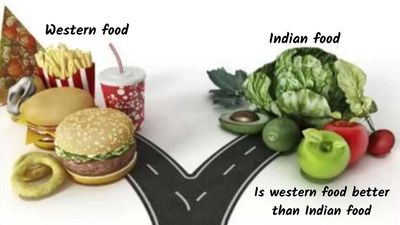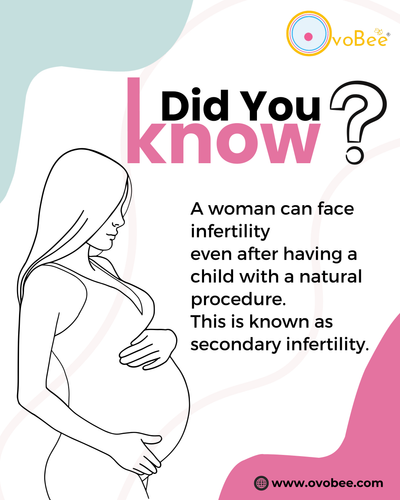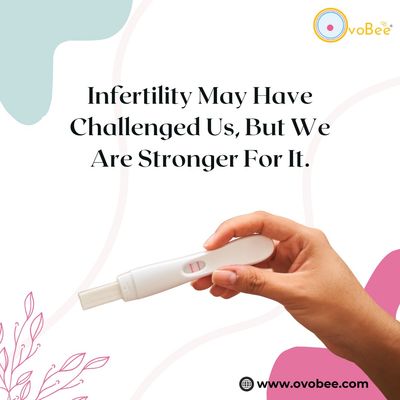Indian Food vs. Western Food for Fertility: Which is Better?
When it comes to improving fertility, diet plays a crucial role. Both Indian and Western cuisines have unique benefits, but their impact depends on how well they align with the principles of a balanced, nutrient-rich, and fertility-enhancing diet. Here's a comparison to help understand which approach might be better for supporting reproductive health.
The Role of Nutrition in Fertility
Essential Nutrients for Fertility:
Key nutrients like folate, zinc, omega-3 fatty acids, antioxidants, and vitamins D and E are
vital for improving egg and sperm quality.
Balanced Blood Sugar:
A diet that stabilizes blood sugar can regulate hormones, which is particularly important for conditions like PCOS.
Anti-Inflammatory Foods:
Foods that reduce inflammation help create a supportive environment for conception.
Indian Food for Fertility
Strengths:
Rich in Plant-Based Nutrients:
Lentils, beans, and chickpeas are excellent sources of protein and folate, which are essential for ovulation and early pregnancy.
Vegetables like spinach, fenugreek, and okra are rich in iron and antioxidants.
Spices with Health Benefits:
Turmeric has powerful anti-inflammatory properties.
Fenugreek and cumin may help regulate hormones.
Good Fats:
Indian food uses healthy fats like ghee and mustard oil in moderation, which can support hormone production.
Traditional Fertility Foods:
Almonds, sesame seeds, jaggery, and dates are often included in Indian diets and are rich in essential nutrients like zinc and iron.
Low-Glycemic Foods:
Whole grains like millet, brown rice, and quinoa help stabilize blood sugar, which is important for conditions like PCOS.
Challenges:
Overuse of Refined Grains:
Excess consumption of white rice and refined flour (maida) can spike blood sugar levels, affecting fertility negatively.
Excessive Oils and Fried Foods:
Traditional cooking methods often involve heavy use of oil, which can lead to unhealthy weight gain if not managed.
Limited Omega-3 Sources:
Omega-3 fatty acids are less abundant in vegetarian Indian diets unless fatty fish (e.g.,mackerel) or flaxseeds are included.
Western Food for Fertility
Strengths:
High in Lean Proteins:
Western diets often emphasize lean meats, eggs, and seafood, which are excellent sources of protein, omega-3s, and zinc.
Fatty fish, like salmon and mackerel are rich in omega-3s, crucial for hormone regulation and egg quality.
Abundance of Fruits and Vegetables:
A Western style "Mediterranean diet" includes a wide variety of fruits, vegetables, and nuts, which are packed with antioxidants.
Whole Grains and Dairy Options:
Options like quinoa, oats, and Greek yogurt provide essential nutrients like calcium, magnesium, and fiber.
Focus on Healthy Fats:
Avocados, olive oil, and nuts provide monounsaturated fats that support reproductive health.
Controlled Portions:
Western diets often encourage portion control, reducing the risk of overeating and weight-related fertility issues.
Challenges:
Processed Foods:
Western diets may include more processed and packaged foods high in trans fats, sugars, and preservatives, which can harm fertility.
Excess Red Meat and Saturated Fats:
High consumption of red meats and saturated fats may contribute to inflammation.
Which Is Better for Fertility?
Strengths of Indian Food for Fertility:
Indian food shines in its use of plant-based proteins, whole grains, and spices with medicinal properties. It can be highly beneficial when traditional recipes are modified to limit excessive oils and refined carbs.
Strengths of Western Food for Fertility:
Western food offers a variety of lean proteins, omega-3-rich fish, and an emphasis on portion control, making it a good choice for balancing hormones and reducing inflammation.
The Verdict:
Neither Indian nor Western food is inherently better for fertility. Instead, a fusion of the best practices from both cuisines can provide optimal benefits:
From Indian Food: Incorporate lentils, spices like turmeric, ghee in moderation, and whole grains like millet.
From Western Food: Add fatty fish, nuts, seeds, and fresh vegetables.
A Fertility-Optimized Diet: Key Principle
Focus on Nutrient-Dense Foods:
Include leafy greens, whole grains, nuts, seeds, lean proteins, and healthy fats.
Limit Processed and Refined Foods:
Reduce sugary snacks, fried items, and refined carbs like white bread and pasta.
Incorporate Omega-3s:
Use fatty fish, walnuts, and flaxseeds regularly.
Maintain a Healthy Weight:
Keep your BMI within a healthy range to support hormonal balance.
Final Thoughts
Both Indian and Western foods have their unique advantages for fertility. By focusing on nutrient-rich, whole foods and limiting processed and high-sugar items, you can build a fertility-friendly diet that suits your preferences and lifestyle. Tailoring your diet with the guidance of a fertility expert or nutritionist can further enhance your chances of conception.









